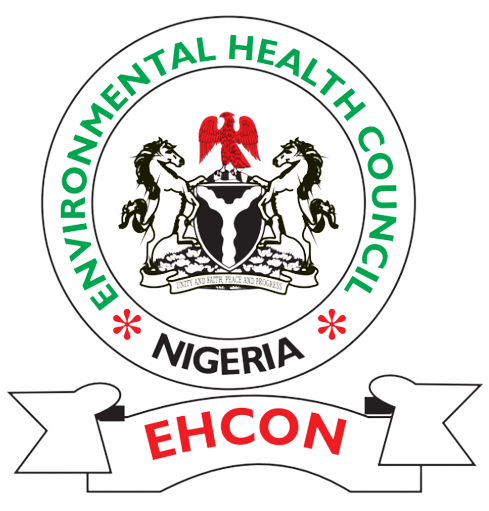EHCON, NBTE begin development of HND curricula for environmental health specialists


The Higher National Diploma curriculum for environmental health specialists is now being developed by the National Board for Technical Education and the Environmental Health Council of Nigeria.
The health specialties were; environmental health (8 options), public health (3 options), epidemiology and disease control (3 options) and water sanitation/hygiene (WASH) (2 options).
Dr. Yakubu Baba, the Registrar of the EHCON, stated that environmental health is a multidisciplinary field that encompasses various specialties including water, sanitation, hygiene, air quality, occupational health, waste management, and food safety, among others, during his remarks at the National curriculum pre-critique and critique workshop for the development of the HND curricula options on Monday in Kaduna.
He stressed that each of these areas is crucial for the promotion of public health and the preservation of environment.
Mr Baba therefore, said it was imperative that Nigeria’s educational programmes reflect the current challenges and advancements in the specialties to produce competent and well-prepared environmental health professionals.
He, therefore, said the workshop was aimed at critically examining the existing curricula and addressing gaps or areas that required improvement.
“Our goal is to create curricula that are comprehensive, innovative, and responsive to the evolving needs of our society. It is essential that our programs equip students with the theoretical knowledge, technical skills, and practical experience necessary to tackle complex environmental health issues,” Mr Baba said.
The registrar clarified that the curriculum would be critiqued in light of the most current research findings, international best practices, and developing environmental health trends.
He claimed that by doing this, it would foster a culture of continuous learning and guarantee that Nigerian graduates are equipped to meet the challenges of a rapidly changing world.
He continued by saying that the criticism should centre on interdisciplinary collaboration and integration and that environmental health issues don’t exist in a vacuum but rather intersect with public health, engineering, and policy, among other professions.
“Our curricula should promote collaborative learning and problem-solving to ensure that our graduates are capable of working effectively in multidisciplinary teams,” he said.
In addition, Baba stated that experiential learning and practical training should be a major part of the curricula, pointing out that environmental health is a practical sector for which graduates must be ready for the realities of the workplace.
In order to give students practical experiences and internships, he continued, partnerships between businesses, governmental organisations, and non-governmental organisations must be fostered.
He continued by saying that the principles of environmental stewardship and sustainable development were supposed to be included in the curricula.
“Our graduates must be equipped with the knowledge and skills to promote ecological balance and mitigate the negative impacts of human activities on the environment. It is essential to pay attention to the ethical aspects of environmental health practice.
“Our curricula must also emphasise professional ethics, integrity, and social responsibility. We need to produce graduates who are not only knowledgeable and skilled but also conscious of the ethical consideration and committed to the well-being of the communities they serve,” Mr Baba said.
He stressed that the development of curricula required collective input, expertise, and dedication.
He urged the participants, resource persons and experts to engage in constructive discussions, valuable insights, and work together to shape the future of environmental health education in Nigeria.
“With our collective efforts, we can ensure the health and well-being of both current and future generations, while safeguarding our precious environment,” Mr Baba said.
Declaring the workshop open, the Executive Secretary of the NBTE, Prof Idris Bugaje, said it had been challenging to bring the health sector to the forefront of technical occupation education and development.
Mr Bugaje, represented by Abba Dawakinkudu, said the NBTE had held several activities with the nursing council and other health related councils, where it saw and believed that the health sector contributed to a greater part of the country’s GDP.
The ES therefore said the sector needed to be standardised, regulated and ensure that it gives the expected value.
He stressed that, after food, which is also health, the nation needed to settle down and standardise the sector
“Apart from individual health, the health of the environment is also critical to ensure sustainability of the health of the country’s population which partly is a responsibility of the EHCON,” he said.
Speaking further, the ES stressed that since inception of the NBTE, they had sustained collaborating with the right institutions and experts in ensuring that the standard was updated and of international best practices to sustain the nation’s educational and trade environment.
He therefore stressed that the curriculum, after its development, would enable lecturers to have directions on what to teach and what not to, and test the competence of who they have trained.
He thanked the EHCON for collaborating with the board, stressing that the outcome of the curricula development would be beneficial to the third world nations and many parts of the world in general.
Also, the Director Curriculum Development Department of NBTE, Dr Hatim Koko, commended the EHCON’s registrar for conceiving the idea.
He urged the working groups and resource persons to commit themselves to come up with documents that would produce food safety and hygiene officials within the environmental health sector.
“Our target is trying to offer a skills specific area of operation in terms of focus and competence that will stand the taste of time. Curriculum activities are normally expected to last for five years before further reviews are incorporated or conceived for any normal change that can arise,” he said.
(NAN)









